NECTA FTNA FORMATS
NECTA Form Two National Assessment (FTNA) FORMATS: The Form Two National Assessment is an important assessment within the Tanzanian education system. It is conducted by the National Examinations Council of Tanzania (NECTA) and serves as a crucial indicator of students’ academic progress and their readiness for higher levels of education. This assessment is designed to measure students’ knowledge and understanding of key topics at Form Two level in NECTA Form Two National Assessment (FTNA) FORMATS.
Understanding the Form Two National Assessment formats is essential for students, teachers and parents. Provides valuable information about the structure, content, and expectations of the exam in NECTA Form Two National Assessment (FTNA) FORMATS. By understanding these formats, stakeholders can better prepare students for assessment and support their academic development.
The assessment covers various components such as multiple choice questions, short answer questions and essay type questions to assess students’ understanding and application of knowledge in different subjects. Additionally of NECTA Form Two National Assessment (FTNA) FORMATS, considerations such as time limits, scoring criteria, and exam standards are also important aspects to keep in mind.
In this guide NECTA Form Two National Assessment (FTNA) FORMATS, we will delve into the specific formats of the Form Two National Assessment, providing detailed information on each component and highlighting the key considerations involved in this important examination process.
NECTA Form Two National Assessment (FTNA) FORMATS
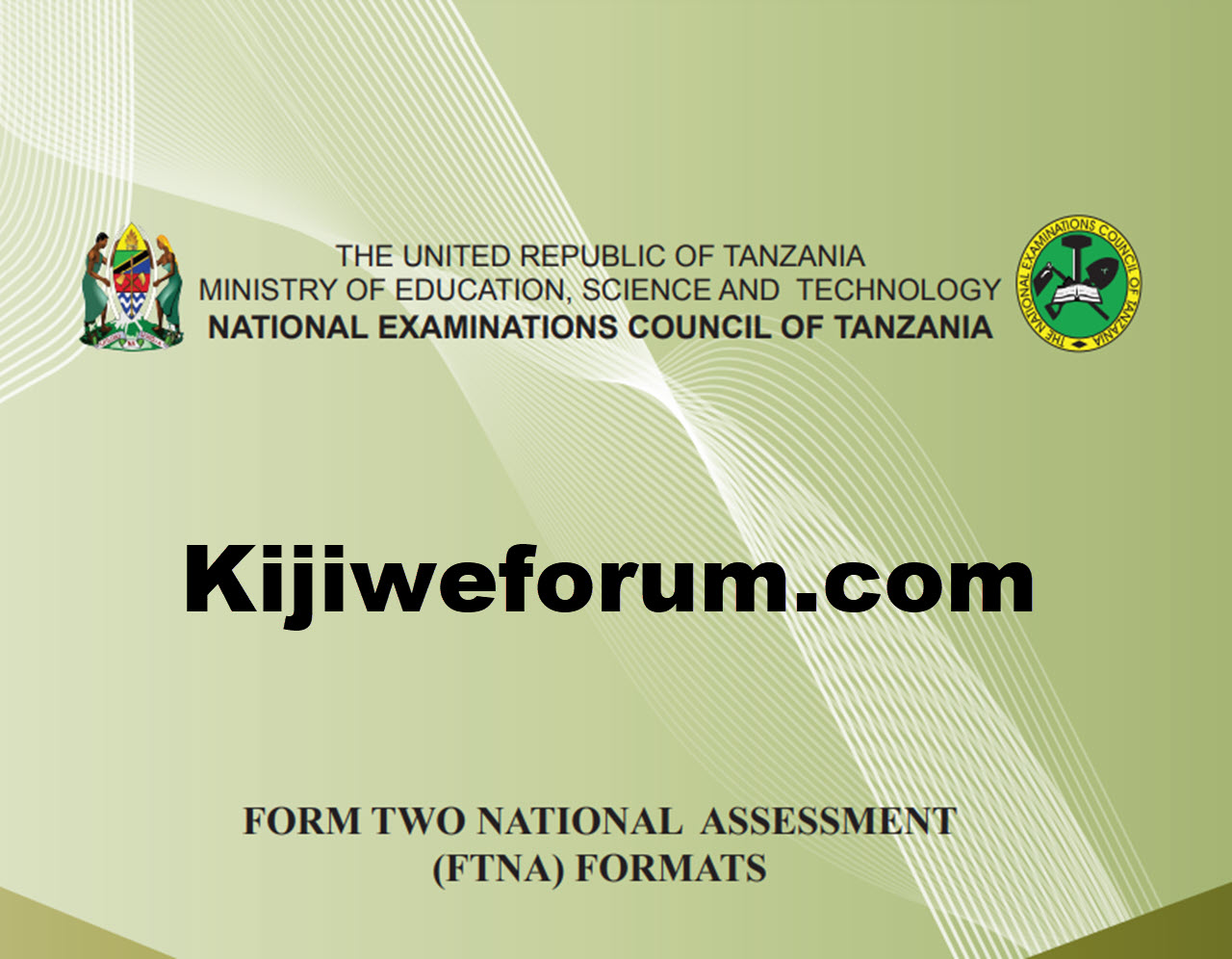
Civics Formats
The following topics will be assessed in Civics from NECTA Form Two National Assessment (FTNA) FORMATS:
- Our nation
- Promotion of life skills
- Human rights
- Responsible citizenship
- Work
- Family life
- Proper behaviour and responsible decision-making
- Road safety education
- Government of Tanzania
- Democracy
- Gender
History Formats
The following topics will be assessed in History:
- Sources and importance of History
- Evolution of man, technology and environment
- Development of economic activities and their impacts
- Development of social and political systems
- Interactions among the people of Africa
- Socio-economic development and production in pre-colonial Africa
- Africa and the external world
- Industrial capitalism
Geography Formats
The following topics will be assessed in Geography:
- Concept of Geography
- The solar system
- Major features of the earth’s surface
- Weather
- Climate
- Map work
- Human activities
- Agriculture
- Water management for economic development
- Sustainable use of forest resources
- Sustainable mining
- Tourism
- Manufacturing industry
- Sustainable use of power and energy resources
- Transportation
Kiswahili Formats
The following topics will be assessed in Kiswahili from NECTA Form Two National Assessment (FTNA) FORMATS:
- Ufahamu
- Sarufi
- Mawasiliano na utumizi wa lugha
- Fasihi
- Uandishi/utungaji
English Language Formats
The following topics will be assessed English Language:
- Giving directions and locating places
- Expressing opinions and feelings
- Writing a variety of texts, cards, messages, personal letters and taking notes
- Reading a variety of texts, analysing information from the media and using of Dictionary
- Expressing personal and group routines likes and dislikes
- Expressing on-going activities
- Talking about ones’ family, giving descriptions and talking about cultural activities
- Interpreting literary works
- Talking about past events/activities and expressing future plans/activities
- Asking for services
Physics Formats
The following topics will be assessed in Physics:
- Introduction to Physics
- Introduction to laboratory practice
- Measurement
- Force
- Archimedes Principle and the Law of Flotation
- Structure and properties of matter
- Pressure
- Work, energy and power
- Light
- Static electricity
- Current electricity
- Magnetism
- Forces in equilibrium
- Simple machines
- Motion in a straight line
- Newton’s laws of motion
- Temperature
- Sustainable energy sources
Chemistry Formats
The following topics will be assessed in Chemistry:
- Introduction to Chemistry
- Laboratory techniques and safety
- Heat sources and flames
- The scientific procedure
- Matter
- Air, combustion, rusting and fire fighting
- Oxygen
- Hydrogen
- Water
- Fuels and energy
- Atomic structure
- Periodic classification
- Formula, bonding and nomenclature
Biology Formats
The following topics will be assessed in Biology:
- Introduction to Biology
- Safety in our environment
- Health and immunity
- Cell structure and organisation
- Classification of living things
- Nutrition
- Balance of nature
- Transport of materials in living things
- Gaseous exchange and respiration
Basic Mathematics Formats
The following topics will be assessed in Basic Mathematics:
- Numbers
- Fractions
- Decimals and percentages
- Units
- Approximations
- Geometry
- Algebra
- Ratio, profit and loss
- Coordinate geometry
- Perimeters and areas
- Exponents and radicals
- Quadratic equations
- Logarithms
- Congruence
- Similarity
- Geometrical transformations
- Pythagoras theorem
- Trigonometry
- Sets
- Statistics
Commerce Formats
The following topics will be assessed in Commerce:
- Commerce basics
- Production
- Entrepreneurship
- Domestic trade
- Economic basics
- Warehousing management
- Transportation
Book Keeping Formats
The following topics will be assessed in Book Keeping from NECTA Form Two National Assessment (FTNA) FORMATS:
- Introduction to Book Keeping
- Principle of double entry
- Trial balance
- Elementary financial statements
- Books of prime entry
- Columnar cash books
- Bank reconciliation statements
- Government accounting and budgeting
- Correction of Book Keeping errors
Check also:



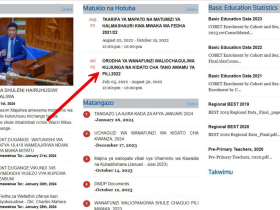

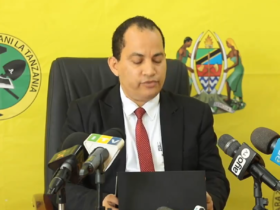
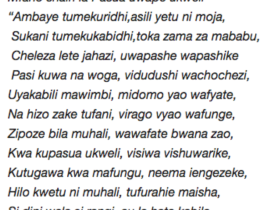
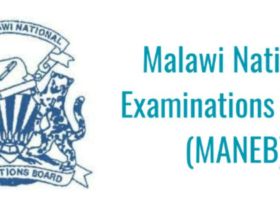
Leave a Reply